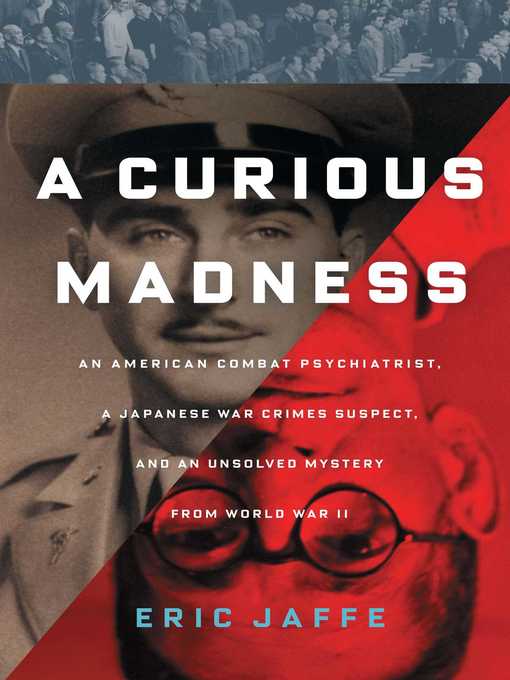
A Curious Madness
An American Combat Psychiatrist, a Japanese War Crimes Suspect, and an Unsolved Mystery from World War II
کتاب های مرتبط
- اطلاعات
- نقد و بررسی
- دیدگاه کاربران
نقد و بررسی

September 30, 2013
Jaffe, a journalist and historian (The King’s Best Highway: The Lost History of Boston Post Road, The Route that Made America), combines the story of his grandfather, American Army neuropsychiatrist Daniel Jaffe, with that of Japanese radical conservative thinker Okawa Shumei in this unlikely story of how of two very different lives intersected to result in one of Japan’s most notorious war criminals of WWII escaping prosecution. The latter figure was an intellectual heavyweight while the former was an anonymous military doctor, but for a few hours, in May 1946, Captain Jaffe examined Okawa to determine his mental fitness to stand trial as a war criminal. Thus, Okawa, who was considered by the American military to be “every bit the madman” and the ideological inspiration for Japan’s militaristic aggression during WWII, was the only top Japanese war trial defendant (and the only civilian among them) to go free. Jaffe’s well-researched, engaging story touches on subjects as diverse as the roots of Okawa’s conservative nationalism and the U.S. Army’s theories and treatments for combat fatigue, but most importantly it reveals the strange ways war can bring diverse lives together for a brief moment to change not only those individuals, but history.

October 15, 2013
Jaffe (former web editor, Smithsonian magazine) tells the story of two men whose lives converged at the Tokyo war crimes trial following World War II. One was Shumei Okawa, a Japanese civilian considered by many as the intellectual leader of Japanese militarism; the other was Maj. Daniel Jaffe, the U.S. Army psychiatrist assigned to determine the accused's sanity (and the author's grandfather). This book explores not only the mystery surrounding Okawa's mental state but also that of the quiet, war-fatigued psychiatrist. The only civilian on trial, Okawa slapped former Prime Minister Tojo's head the first day in court; Major Jaffe's assessment of Okawa helped him be removed from the proceedings. A considerable part of the book is devoted to the author's grandfather's story: his mentally ill Jewish immigrant mother, his education and training, and his work with shell-shocked soldiers in combat. This book is equally as compelling as Jack El-Hai's The Nazi and the Psychiatrist, above. VERDICT Recommended for those interested in the Tokyo war crimes trials, the nature of mental illness, or the treatment of combat exhaustion.--Leslie Lewis, Duquesne Univ. Lib., Pittsburgh
Copyright 2013 Library Journal, LLC Used with permission.

November 1, 2013
The Nuremberg Trials have been written about extensively, but there was another post-WWII military tribunal, which has received much less attention. In Tokyo in 1946, 30 former Japanese military leaders, including Tojo Hideki, general of the Japanese army and architect of the attack on Pearl Harbor, were put on trial for their lives. Also on trial was a civilian, writer and philosopher Okawa Shumei, whose erratic behavior in the courtroom led to his being assessed by Japanese and American experts to determine whether he was insane, or faking. The American expert was Daniel Jaffe, a U.S. Army psychiatrist (and the author's grandfather); he determined Okawa was unfit to stand trial, a determination that is still controversial today. This gripping book explores not only the Okawa case but also a hidden part of the author's grandfather's life. The author delves into both men's backgrounds and offers an opportunity to put Okawa's and Jaffe's actions at the tribunal in a larger context, to understand, in particular, how Jaffe's personal history influenced his assessment of Okawa. Highly recommendable to readers of WWII history.(Reprinted with permission of Booklist, copyright 2013, American Library Association.)

























دیدگاه کاربران